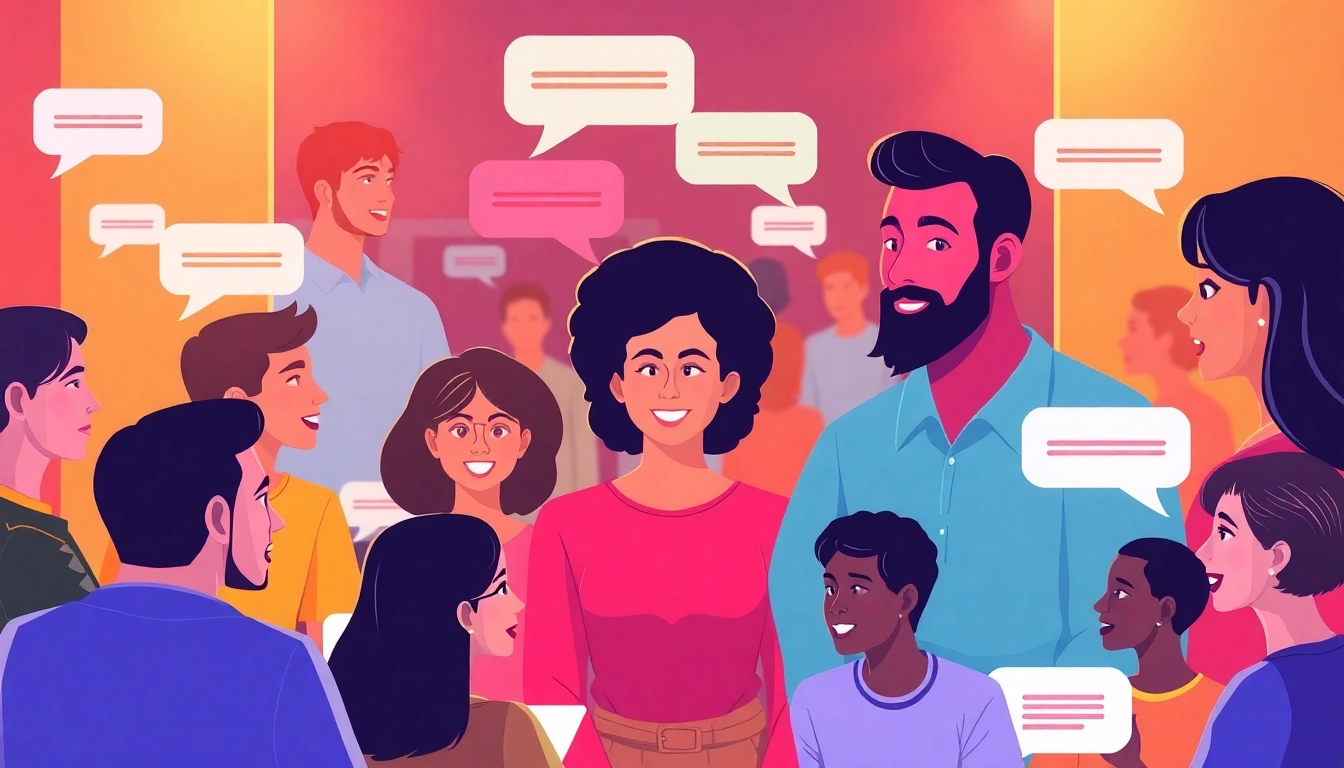Introduction to Communication in Relationships
Effective communication is the cornerstone of a healthy relationship. It involves more than just exchanging words; it is about understanding, empathy, and connection. When partners communicate clearly and effectively, they can express their thoughts, feelings, and needs, leading to deeper intimacy and stronger bonds. Unfortunately, many couples struggle with this essential skill, often resulting in misunderstandings and conflicts. Learning to communicate in relationships is vital for fostering a harmonious environment where both partners feel heard and valued.
The Role of Communication in Healthy Relationships
Communication plays a pivotal role in the dynamics of a relationship. It serves multiple functions including:
- Building Trust: Open dialogue fosters trust, as partners feel confident that they can share personal thoughts without judgment.
- Conflict Resolution: Proper communication can help resolve disputes amicably, allowing partners to find common ground and solutions.
- Emotional Intimacy: Sharing feelings leads to emotional closeness, creating a bond that strengthens over time.
- Clarifying Expectations: Open conversations help clarify what each partner expects from the relationship, reducing the potential for miscommunication.
Common Communication Barriers and How to Overcome Them
While effective communication is fundamental, there are several barriers that can hinder it:
- Defensiveness: When one or both partners become defensive, it can shut down open communication. To overcome this, practice active listening and ensure that all voices are treated with respect.
- Assumptions: Making assumptions about what your partner is thinking or feeling can lead to misunderstandings. Instead, ask clarifying questions to better understand their point of view.
- Emotional Baggage: Past experiences can color present conversations. Acknowledge your feelings, but try to separate them from the current discussion.
- Distractions: Engaging in conversation while distracted by phones or other activities reduces the quality of the dialogue. Set aside time for uninterrupted communication.
Key Components of Effective Communication
Active Listening: The Foundation of Good Communication
Active listening is a critical skill that fosters understanding and connection. This involves:
- Paying Attention: Focus fully on your partner without thinking about your response while they are speaking.
- Reflecting: Summarize what your partner has said to show understanding and validate their feelings.
- Asking Open-Ended Questions: Encourage your partner to share more by asking questions that require more than a yes or no answer.
Nonverbal Communication: Reading Between the Lines
Nonverbal cues such as body language, facial expressions, and tone of voice can significantly affect the message being conveyed. Be aware of how you present yourself physically and interpret your partner’s nonverbal signals to gain more insight into their feelings.
The Importance of Honesty and Openness
Honesty is vital in any relationship, as it lays the foundation for trust. Being open about feelings, intentions, and needs can clear misunderstandings and help both partners align their expectations.
Strategies to Improve Communication in Relationships
Techniques for Positive Conflict Resolution
Disagreements are a natural part of any relationship, but how they are handled can determine the health of the partnership. Here are techniques to resolve conflicts positively:
- Stay Calm: Take a breather if emotions run high before discussing the issue.
- Use “I” Statements: Express your feelings without placing blame. For example, instead of saying “You don’t care about my feelings,” try “I feel hurt when my feelings are not considered.”
- Seek Solutions: Focus on finding a resolution that satisfies both parties instead of dwelling on who is right or wrong.
Building Trust through Transparent Conversations
Trust is built through transparency and accountability. Share your thoughts openly and do not shy away from discussing difficult topics. This fosters a culture of honesty and respect that reinforces the relationship’s foundation.
Tools for Encouraging Open Communication
Utilize tools such as couple’s journaling, regular check-ins, or dedicated discussion time to encourage open communication. These methods provide structure that can help mitigate distractions and deepen understanding over shared concerns.
Enhancing Connection through Shared Goals and Values
Aligning Values for Deeper Understanding
Discussing values and beliefs can help partners understand each other’s motivations and perspectives better. This can play a critical role during conflicts, helping each partner empathize with where the other is coming from.
Setting Relationship Goals Together
Setting mutual goals helps to reinforce teamwork and creates a sense of shared purpose. Regularly reviewing these goals fosters ongoing communication and accountability.
Celebrating Achievements as a Couple
Recognizing and celebrating achievements—both big and small—can deepen emotional intimacy and strengthen the relationship. These moments provide opportunities for positive reinforcement and appreciation.
Measuring the Impact of Communication on Relationship Satisfaction
Assessing Relationship Health through Communication
Regularly evaluate how communication patterns affect relationship satisfaction. Are partners feeling heard and understood? Are conflicts resolved constructively? These reflections can help identify areas needing improvement.
Feedback Techniques for Continuous Improvement
Constructive feedback is essential for growth. Utilize tools such as feedback sessions where each partner can express their feelings about communication styles and needs in a respectful and compassionate way.
Resources for Further Learning and Development
Consider enrolling in workshops, reading books, or even seeking guidance from relationship coaches or therapists to enhance communication skills further. Resources such as “The Seven Principles for Making Marriage Work” by John Gottman or workshops on emotional intelligence can be impactful.



